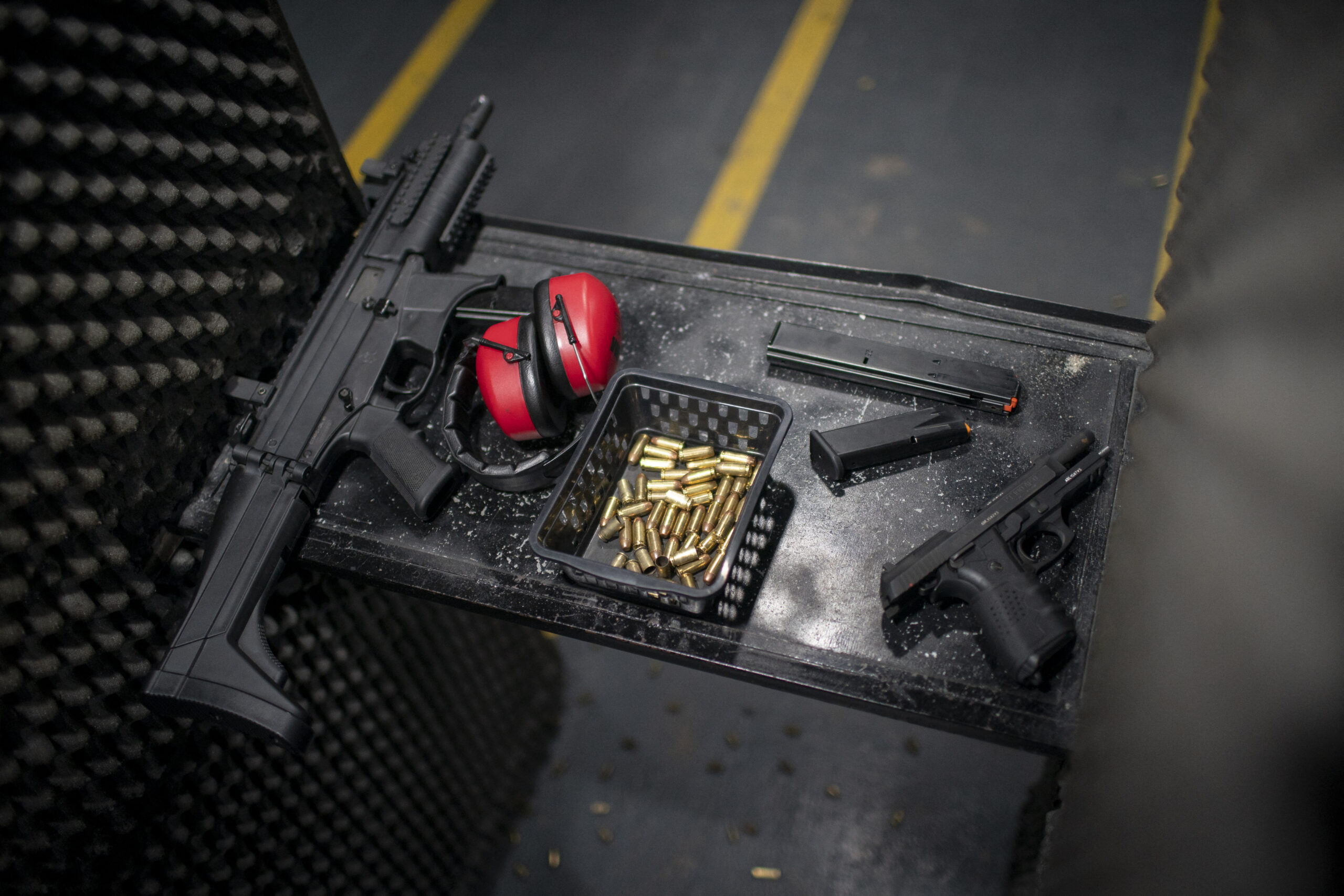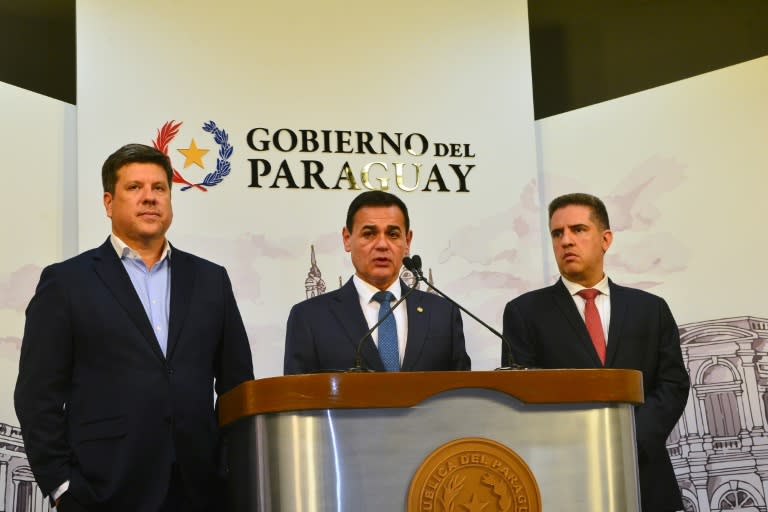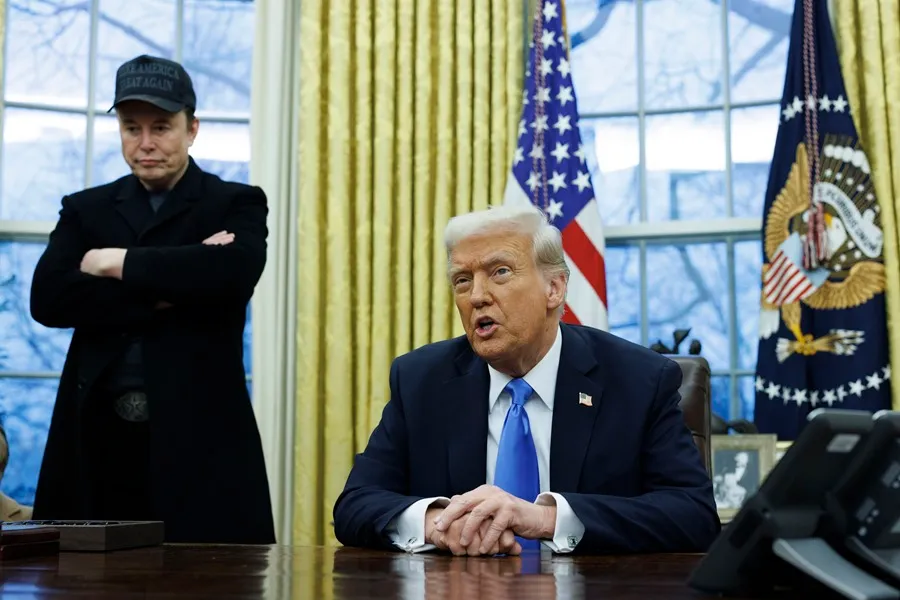International
Booming gun ownership triggers fears for Brazil vote

AFP | by Eugenia LOGIURATTO
Wearing a black T-shirt stamped with the word “Bolsonaro” and a skull, Brazilian ex-cop Elitusalem Gomes Freitas takes aim with his .40-caliber rifle and fires, savoring the smell of gunpowder as he nails his target.
Clutching his bulky black rifle at a firing range in the Rio de Janeiro suburbs, a handgun strapped to his thigh, Freitas proudly repeats one of far-right President Jair Bolsonaro’s maxims: “An armed populace will never be enslaved.”
Freitas is part of a demographic that has boomed in Bolsonaro’s Brazil: since the former army captain became president in 2019, the number of registered gun owners has more than quintupled, from 117,000 to 673,000, as the administration has loosened gun-control laws.
There are now more civilian gun owners in Brazil than police — 406,384.
That is making some Brazilians nervous as the country heads for a divisive presidential election on October 2 pitting Bolsonaro against his leftist nemesis, ex-president Luiz Inacio Lula da Silva (2003-2010), who leads in the polls.
Citing fears of election violence, the Supreme Court temporarily suspended several of Bolsonaro’s gun-control rollbacks last week. The week before, the Superior Electoral Tribunal (TSE) banned voters from bringing guns to polling stations.
Like Bolsonaro, Freitas is no fan of the electoral authority, which the president accuses of allowing what he insists — without evidence — is rampant fraud in Brazil’s electronic voting system.
After inspecting the white silhouette target he has just filled with holes, Freitas, 42, explains he is ready to take up arms if necessary to defend Brazil’s “freedom.”
“I can’t allow half a dozen people (the TSE’s judges) to decide our nation’s destiny against the people’s will. The right to bear arms is how we guarantee our freedom and defend our sovereignty against the internal enemy,” he says.
But he adds there is nothing to fear from Brazil’s burgeoning class of firearm owners.
“It’s not about arming everyone. It’s about giving good citizens the right to access a firearm and learn to use it.”
‘Cursed inheritance’
Security expert Bruno Langeani says hardliners ready to take up arms in the name of politics are a minority in Brazil.
But he emphasizes that “even a minority can cause huge damage if it’s radicalized,” pointing to the rioters who stormed the US Capitol last year after the election loss of ex-president Donald Trump — Bolsonaro’s political role model.
Langeani says the massive expansion of gun ownership in Brazil will be a “cursed inheritance” that could fuel violence for years to come.
“A civilian can now buy more powerful guns than the police,” he says.
“Licensed hunters, sport shooters and collectors can in some cases own up to 60 firearms per person, including 30 assault rifles.”
There are 4.4 million firearms in civilian hands in Brazil, a country of 212 million people, according to the Brazilian Public Security Forum.
One-third of them have expired permits.
Bolsonaro points to a fall in murders as evidence his gun policies are a success: last year, the number of homicides fell by 13 percent.
However, the number of murders with firearms increased by 24 percent, according to health ministry figures.
‘Like a shopping mall’
Around 1,000 shooting clubs — members-only firing ranges — have opened in Brazil since Bolsonaro took office, according to army figures cited by online news site UOL.
“When the government made it easier to purchase firearms, I said, ‘We have to jump on this,’” says former policeman Marcelo Costa, president of the club where Freitas practices, Mil Armas (One Thousand Firearms), which opened four years ago.
Costa operates the club with his two sons, both in their twenties and both fellow gun enthusiasts. His wife, a psychologist, is licensed by the authorities to perform the mandatory psychological evaluations of all new members.
The club, which has strict security protocols, offers lessons for members, and legal advice for those who want to obtain a gun license.
Members can borrow or purchase weapons from the club’s vast arsenal, with prices ranging from 5,000 to 20,000 reais ($950-$3,800).
“It’s like a shopping mall. We have everything,” says Costa, who offers the option to buy guns in up to 12 installments with no interest.
International
Paraguay summons Brazilian ambassador over Itaipú espionage scandal

Paraguay summoned the Brazilian ambassador in Asunción on Tuesday to demand “explanations” and called its own representative in Brasília for consultations following Brazil’s acknowledgment of an espionage operation. The Brazilian government, led by President Luiz Inácio Lula da Silva, attributed the operation to the previous administration.
The surveillance effort aimed to uncover Paraguay’s position in now-suspended negotiations with Brazil regarding the pricing of electricity from the binational Itaipú hydroelectric plant, according to reports in the Brazilian press.
The Brazilian government “categorically denied any involvement in the intelligence operation,” stating in a Foreign Ministry communiqué on Monday that the espionage was carried out under former President Jair Bolsonaro’s administration (2019-2023).
“The operation was authorized by the previous government in June 2022 and was annulled by the interim director of the (state intelligence agency) ABIN on March 27, 2023, as soon as the current administration became aware of it,” Brazil’s government asserted.
Paraguay’s Foreign Minister Rubén Ramírez announced that Brazilian Ambassador José Antonio Marcondes de Carvalho was summoned “to provide detailed explanations” regarding the operation. Additionally, Paraguay recalled its diplomatic representative in Brasília “to report on aspects related to the intelligence activity conducted by Brazil regarding Paraguay’s government affairs.”
International
Elon Musk to step down as government advisor, per Trump insiders

President Donald Trump has informed his inner circle that Elon Musk will be stepping down from his role as a government advisor, according to a report by Politico today.
Citing three individuals close to Trump, Politico states that the president is pleased with Musk’s leadership at the Department of Government Efficiency (DOGE), where he has implemented significant budget cuts. However, both have agreed that it is time for Musk to return to his businesses and support Trump from a different position outside the government.
A senior administration official told Politico that Musk will likely maintain an informal advisory role and continue to be an occasional visitor to the White House. Another source warned that anyone thinking Musk will completely disappear from Trump’s circle is “deluding themselves.”
According to the sources, this transition is expected to coincide with the end of Musk’s tenure as a “special government employee,” a temporary status that exempts him from certain ethics and conflict-of-interest regulations. This 130-day period is set to expire in late May or early June.
International
Milei vows to make Argentina so strong that Falkland Islanders “choose” to join

Argentine President Javier Milei reaffirmed his country’s claim over the Falkland Islands (known as the Islas Malvinas in Argentina) and praised the role of the nation’s armed forces during a ceremony marking the “Veterans and Fallen Soldiers of the Malvinas War Day,” commemorating 43 years since the 1982 conflict with the United Kingdom.
Argentina continues to assert sovereignty over the islands, arguing that Britain unlawfully seized them in 1833.
“If sovereignty over the Malvinas is the issue, we have always made it clear that the most important vote is the one cast with one’s feet. We hope that one day, the Malvinas residents will choose to vote with their feet and join us,” Milei stated.
“That is why we aim to become a global power—so much so that they would prefer to be Argentine, making deterrence or persuasion unnecessary. This is why we have embarked on a path of liberation, working to make Argentina the freest country in the world and once again the nation with the highest GDP per capita on the planet,” he added.
-

 Central America3 days ago
Central America3 days agoU.S. Homeland Security Secretary urges Mexico to strengthen Guatemala border
-

 Central America3 days ago
Central America3 days agoPanama grants Martinelli 72-hour extension to travel to Nicaragua
-

 International2 days ago
International2 days agoParaguay summons Brazilian ambassador over Itaipú espionage scandal
-

 Central America5 days ago
Central America5 days agoPanama police clarifies that Interpol alert for Martinelli is still pending
-

 International3 days ago
International3 days agoTrump urges Putin to reach peace deal
-

 International5 days ago
International5 days agoDeportation flight lands in Venezuela; government denies criminal gang links
-

 Sports2 days ago
Sports2 days agoFilipe Luis debuts as coach in Copa Libertadores with Flamengo
-

 International2 days ago
International2 days agoElon Musk to step down as government advisor, per Trump insiders
-

 Central America2 days ago
Central America2 days agoGuatemalan police officer killed in mob riots over baby kidnapping
-

 Sports2 days ago
Sports2 days agoVenezuela investigates 18 baseball players seeking asylum in Spain
-

 International2 days ago
International2 days agoMilei vows to make Argentina so strong that Falkland Islanders “choose” to join
-

 International2 days ago
International2 days agoÓscar Arias: Trump’s trade policies are a step backward
-

 International2 days ago
International2 days agoICE agent’s arrest of suspect sparks controversy in Boston















